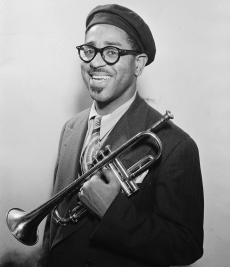
American Popular Music is arguably one of the most well-received and relevant genres of music; not just within today’s society, but also from its inception, and no doubt it will continue to be so in the future. This is due to a number of factors, but perhaps undeniably because of its relatability through common themes, and upbeat nature, providing a sense of optimism and unity, which was all the more important through more turbulent times in America’s history, such as within the American Civil Rights Movement. Above all, yes, this genre of music is described as thus because of its geological creation, but it is befitting of the people themselves; the Americans themselves being nationalistic and proud, and often unafraid to challenge injustices. As such, it seems only right that the music they create and listen to, is not only given their name, but shares these defining characteristics. After all, ‘music is one important medium through which we formulate and express our identity,’ and despite the American People being comprised of people with many different origins and races, this music still somehow manages to provide all these demographics was a strong sense of identity.
Despite American Popular Music’s current reputation for being rather ‘meaningless’ and commercialised, I think it’s unfair to brand all American Music as such; it’s irrefutable what the genre has done for the American People on a political level, among others. The American Civil Rights Movement began in 1954, lasting until 1968; the duration being more than implicit of the amount of inequalities in America at the time, especially those affecting African-Americans. A crucial issue was that of voting, with African-Americans being prohibited from doing so until near the end of the movement, in 1965. What other medium than music could express the turmoil of these times? Arguably, music had been challenging this inequality for years before the Civil Rights Movement; ‘ African American music… became in the 1940’s a site for expressing some of the paradoxes, contradictions, tensions, and of course, the joys and pleasure of African American life in those years.’ Dizzy Gillespie is a prime example of this with his composition, ‘A Night in Tunisia.’ Gillespie was already a very influential and innovative figure with his creation of ‘bebop’ as a style of Jazz, but with this piece, he ‘expanded on the idea of a North-South cultural dialogue in Afro-modernist jazz by musically commenting on the past and the future of the musical style.’ Gillespie incorporated an ostinato bass line which he said conjoined the ‘Afro-Cuban future’ of jazz music, along with his own, personal South Carolinian past. Most interestingly, ‘A Night in Tunisia,’ moves away from the standard use of the walking bassline and instead uses oscillating chord changes that either half step up or down, giving the piece its own distinctive style. Indeed, I believe that such music aided the forming of democracy in part due to once both belonged to American society, but at the same time, had their own individuality too.
Image: http://www.metrolyrics.com/dizzy-gillespie-pictures.html

0 Comment:
Be the first one to comment on this article.